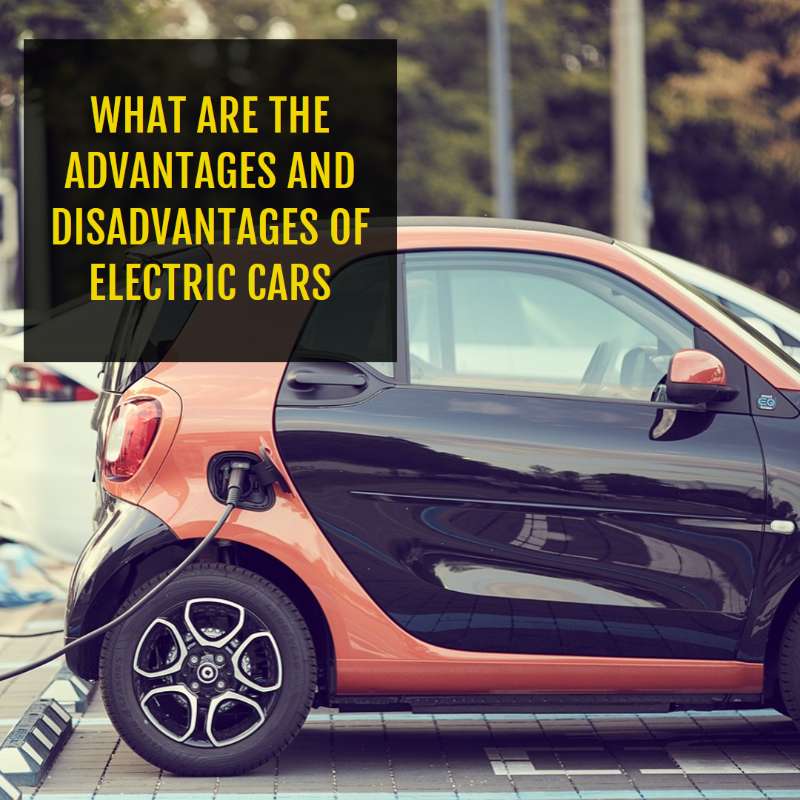Charging Ahead: What are the advantages and disadvantages of electric cars?

As the world grapples with environmental concerns and seeks sustainable alternatives to traditional fossil fuel-powered vehicles, electric cars have emerged as a promising solution.
With advancements in technology and growing environmental consciousness, electric vehicles (EVs) have gained traction globally. However, like any innovation, electric cars come with their own set of advantages and disadvantages.
Advantages of Electric Cars:
- Environmental Friendliness: Electric cars produce zero tailpipe emissions, reducing air pollution and greenhouse gas emissions. This is particularly significant in urban areas where air quality is a major concern. By transitioning to electric vehicles, countries can make strides towards meeting climate targets and mitigating the effects of climate change.
- Reduced Dependence on Fossil Fuels: Unlike conventional cars that rely on gasoline or diesel, electric cars are powered by electricity, which can be generated from renewable energy sources such as solar, wind, or hydroelectric power. This reduces dependence on finite fossil fuels and promotes energy independence.
- Lower Operating Costs: Electric cars have lower fuel and maintenance costs compared to internal combustion engine vehicles. Electricity is typically cheaper than gasoline or diesel, resulting in lower fuel expenses for EV owners. Moreover, electric cars have fewer moving parts and do not require regular maintenance such as oil changes, leading to reduced maintenance costs over the vehicle’s lifespan.
- Performance and Efficiency: Electric motors deliver instant torque, providing smooth acceleration and responsive driving experience. Electric cars are often praised for their quiet operation and smooth ride quality. Additionally, regenerative braking systems help recharge the battery while slowing down, improving overall energy efficiency.
- Government Incentives: Many governments offer incentives to promote the adoption of electric vehicles, such as tax credits, rebates, and subsidies. These incentives can significantly reduce the upfront cost of purchasing an electric car, making it more affordable for consumers.
Disadvantages of Electric Cars:

- Limited Driving Range: One of the primary concerns with electric cars is their limited driving range on a single charge. Although range anxiety is gradually diminishing with advancements in battery technology, many electric vehicles still cannot match the range of traditional gasoline-powered cars. Long charging times and limited availability of charging infrastructure further exacerbate this issue.
- High Initial Cost: Electric cars tend to have higher upfront costs compared to their gasoline counterparts. The cost of battery technology remains a significant factor contributing to the higher purchase price of electric vehicles. While government incentives can offset some of these costs, the initial investment remains a barrier for many potential buyers.
- Charging Infrastructure: The availability of charging infrastructure remains a significant challenge for widespread adoption of electric cars. While charging stations are becoming more prevalent, especially in urban areas, there are still concerns regarding the accessibility and reliability of charging networks, particularly in rural or remote regions.
- Battery Degradation and Recycling: Lithium-ion batteries, which are commonly used in electric cars, degrade over time, affecting the vehicle’s overall range and performance. Additionally, concerns have been raised regarding the environmental impact of battery production and disposal. Proper recycling and disposal methods are essential to minimize the environmental footprint of electric vehicles.
- Limited Model Options: Despite the growing popularity of electric cars, the variety of models available in the market is still limited compared to conventional vehicles. Consumers may find fewer options in terms of vehicle types, sizes, and features when considering electric vehicles, which could restrict their choices based on their preferences and needs.

Electric cars offer numerous advantages, including environmental sustainability, lower operating costs, and enhanced performance. However, challenges such as limited driving range, high initial costs, and charging infrastructure remain barriers to widespread adoption.
As electric cars continue to evolve and gain popularity, what steps do you think governments, businesses, and individuals should take to overcome the challenges and accelerate the widespread adoption of electric vehicles? Share your thoughts and ideas below!